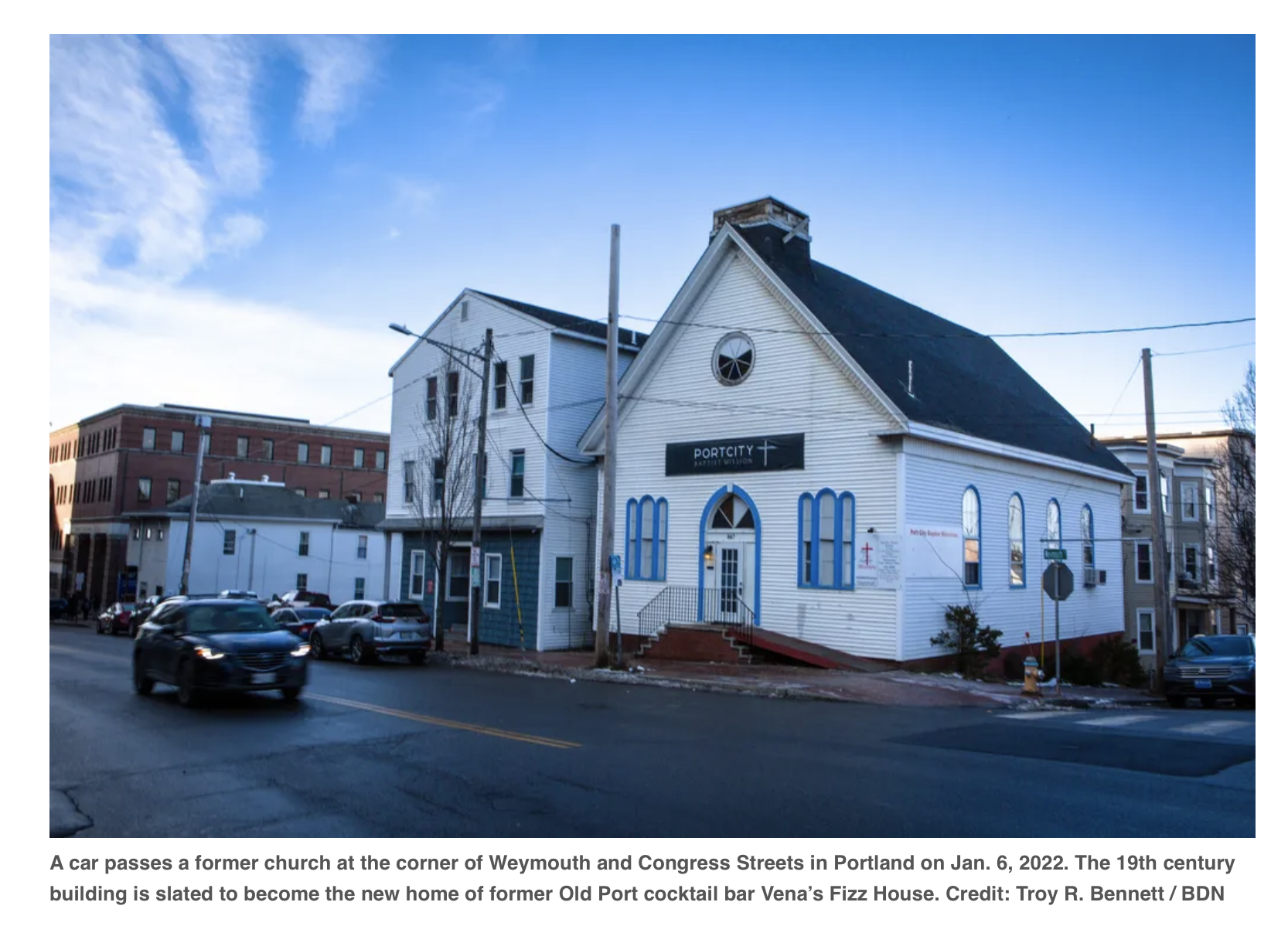By God, attention fellow former law students: the Rule Against Perpetuities has surfaced in Maine!
/Buried deep in the original property deed was handwritten language barring the church’s use for anything that would be considered sinful, which spooked their bank’s underwriters. It took some novel legal maneuvering from the Cormans’ attorney to eventually smooth things out between the long-dead church founders and very-much-alive money lenders.
The deed sought to bar uses including instrumental music, choir concerts, politics and all “devices of uninspired men.”
The white, steepled church sanctuary was built in 1889, and housed a United Church of Christ congregation until 2015. That year, it was sold to a group of Baptists for a single dollar. That congregation dissolved last year and the church was put on the market.
The original Church of Christ deed expressly ruled out selling the property to anyone not operating it as a church. It expressly forbade, along with unholy music, “festivals for the getting of money,” “voting” or anything “not plainly taught by the express precept or approved example of the apostles of Jesus Christ as the same are set forth in the holy writings called the New Testament.”
The bank’s underwriters figured that likely included the Fizz House mixing martinis, Manhattans and sloe gin fizzes — which was bad news for the Cormans.
What’s more, the deed’s timeframe extended “even unto the coming of our Lord.”
The Cormans sought help from their attorney.
“He wrote a 12-page legal statement and the bank went for it,” Steve Corman said.
Their attorney reasoned the deed’s own broad statements were its downfall, based on accepted legal rules against perpetuities.
Broadly, perpetuities rules state that someone’s interest in a property ends 21 years after their death. The purpose of the rule is to prevent folks from drafting transfer agreements that could control the destiny of land 100 or 200 years after they are gone — just as in the Cormans’ case.
The Rule Against Perpetuities is a tricky little bastard:
The rule against perpetuities is one of the most difficult topics encountered by law school students.[18] It is notoriously difficult to apply properly: in 1961, the Supreme Court of California ruled that it was not legal malpractice for an attorney to draft a will that inadvertently violated the rule.[19]
In my experience, the rule served mostly as a means to torture first-year law students in their property law finals, but lo, here’s an actual case, and one that doesn’t date back to 17th Century England.
After forty-one years, I’d finally abandoned all hope of ever using or even encountering that bit of arcane legal lore, obtained with such difficulty in 1L. My life is now complete.

